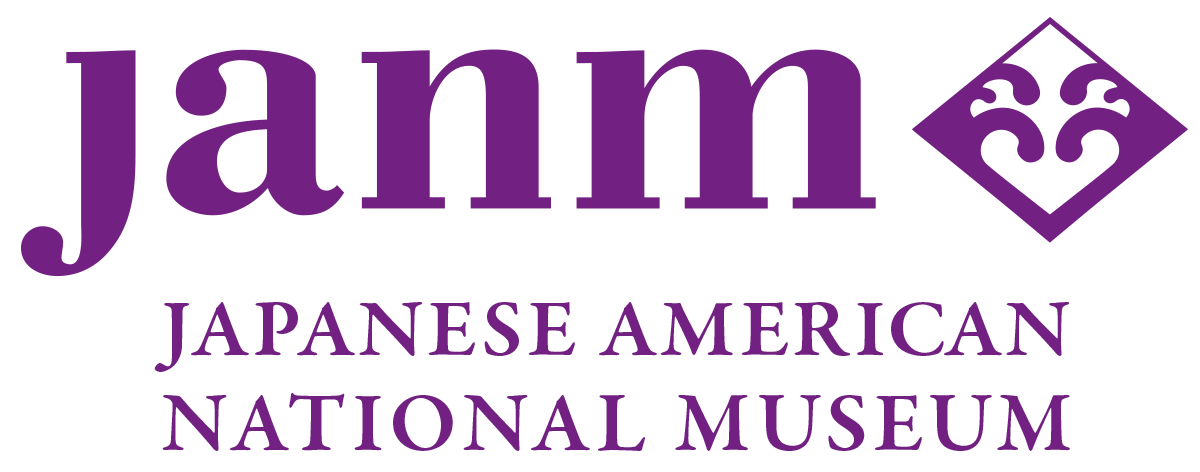FOR IMMEDIATE RELEASE - October 1, 1999
PRESS CONTACTS:
Chris Komai - mediarelations@janm.org - (213) 625-0414

An American Diary: Paintings by Roger Shimomura Opens at Japanese American National Museum October 8
LOS ANGELES—An American Diary, a traveling exhibition of paintings and prints by sansei (third generation Japanese American) artist Roger Shimomura, inspired by the World War II diary entries of his grandmother written during her incarceration in the Minidoka concentration camp, will be on display from October 8, 1999 to January 16, 2000 at the Japanese American National Museum.
“An American Diary is a small part of a larger effort to educate the public about the Japanese American camp experience,” says Roger Shimomura, “and introduce that lesson by way of art.”
Presented in a highly accessible, American Pop comic book, Shimomura’s art translates poignant memories from his grandmother’s camp experience at Minidoka, Idaho, recreating the monotony and uncertainty that were a part of everyday life. His unique paintings alongside the translated captions from his grandmother’s diary (she wrote originally in Japanese) create an intergenerational dialogue dedicated to shedding light on the Japanese American experience during World War II. “Her entire life has been documented,” says Shimomura of his grandmother, who kept a diary for 56 years.
For this exhibition, Shimomura departed from his well-known signature woodblock style. His references to American comic book icons like Dick Tracy and Superman are, as he says, “intended to be sarcastic.” Having collected comic books since he was young, he attaches representational values to those characters in his art. “The designation of Superman as representing America was the image that I used in the initial diary series. I couldn’t resist using it again.”
In addition to 30 paintings and 10 lithographic prints from the limited edition book, Memories of Childhood, An American Diary features five actual diaries of Toku Shimomura, an issei (first generation Japanese American) who came to the U.S. as a picture bride in 1912 and worked as a midwife. “I’m sure she would be humbled,” says Shimomura about his grandmother’s possible reaction to having her diaries exhibited at the Japanese American National Museum. “Yet, I think secretly she would be genuinely honored by it. She had an amazing sense of being a pioneer in this country.”
Roger Shimomura always shared a very close relationship with his grandmother, as is evidenced by her many references to Roger in her diary entries. “I was her first grandchild, and the fact that she delivered me made me in her eyes quite special,” says Shimomura.
Her close relationship with her family, however, could not erase the distress and confusion over the war itself. On December 7, 1942, she entered into her diary, “Today marks one year since the outbreak of the war between the United States and Japan. Those of us that share the virtues of both countries, pray for the earliest possible peace.” The accompanying painting to this caption is of a partially eaten American chocolate bar, lying next to a bowl brimming with noodles and tofu which is not wholly visible.
“The aim of the exhibition is not only for people to learn something more about camps,” Shimomura says, “but also about art and the art making process.”
On Sunday, October 10 at 2 p.m., Shimomura will give a lecture on his art and An American Diary, explaining the inspiration behind his exhibition. He is currently a distinguished professor of Art at the University of Kansas, and has exhibited his work extensively nationally and internationally since the 1960s.
An American Diary is funded by a grant from the Civil Liberties Public Education Fund and is traveling the nation extensively. Available for sale in the Museum Book Store is a 23-page publication accompanying the exhibition. Also available is a limited edition book of Shimomura’s lithographic prints, Memories of Childhood. This book was co-published by Steinbaum Krauss Gallery, New York City and the Lawrence Lithography Workshop, Sunland Park, New Mexico. To call the Museum Book Store, call 888.769.5559.
###

